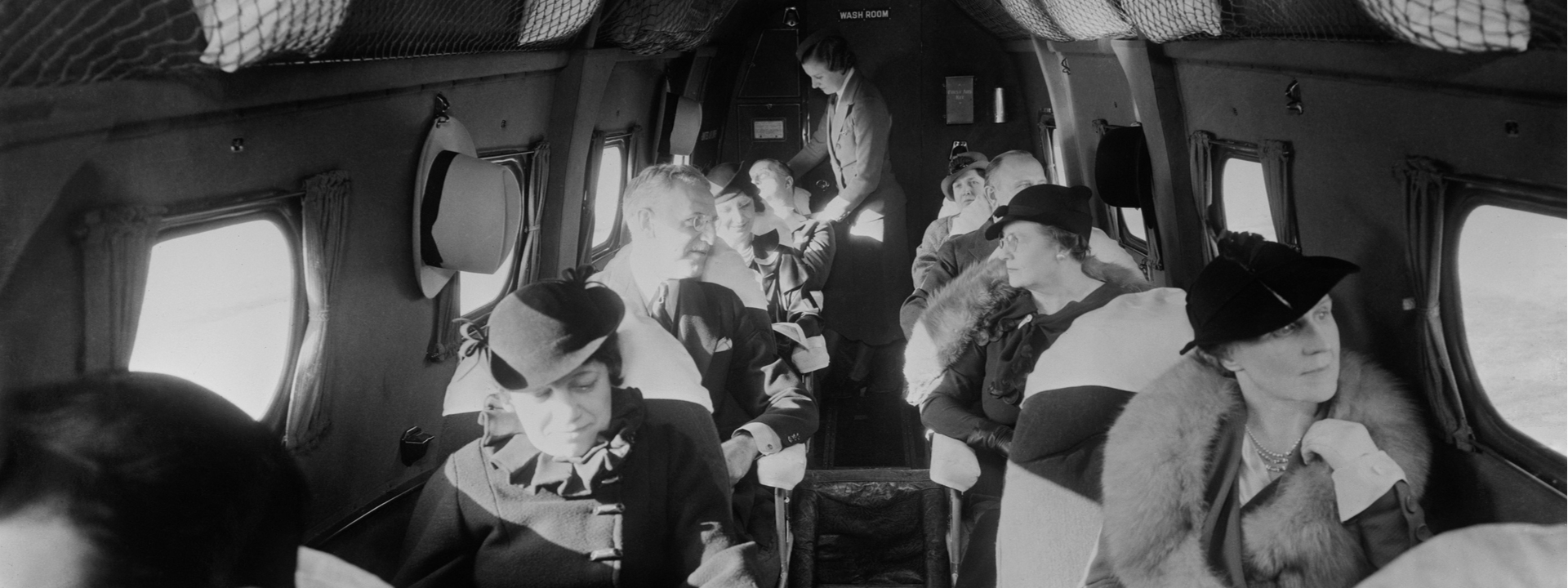Experience junkies are nothing new, but what does it mean for travel?
After wandering around Southampton’s Solent Sky museum, the home of Southampton’s rich aeronautical history; I realised how different squeezing into an easyjet pew at 5 in the morning might have been from early days of flight travel. Imperial Airways, who began flying-boat operations from Southampton docks in 1936; treated their paying passengers like royalty, with impeccable service en route – from tea served above Mt Etna, Cocktails alongside Cairo and dinner in Alexandria. The unpressurised cabins meant that the flying boats flew so low that passengers could be shown famous landmarks along the route by the crew. Mt Etna, the highest Volcano in Europe at 11,000 feet; would have been seen with awe alongside the aircraft rather than below it. Far from just a way to get from A to B, the whole trip was a dot-to-dot of unique details at every stage of the journey; from cocktail bars to libraries and handwritten notes from the pilot, not to forget the likely and certainly memorable experience of an emergency landing – a genuine possibility at the time.
But travelling like this was by no means the norm in 1936, it was what we might call an ‘extreme behaviour’ and a signal of what was to come. The early adopters of flight travel led the way for the mass budget airline market we have today, and for some time after the 1930s, flight travel played on this luxury of the past. The light touches of air hostesses in crisp uniforms and pilots who wave you out of Ryanair today, stand as the last remnants of the glamour of early flying.
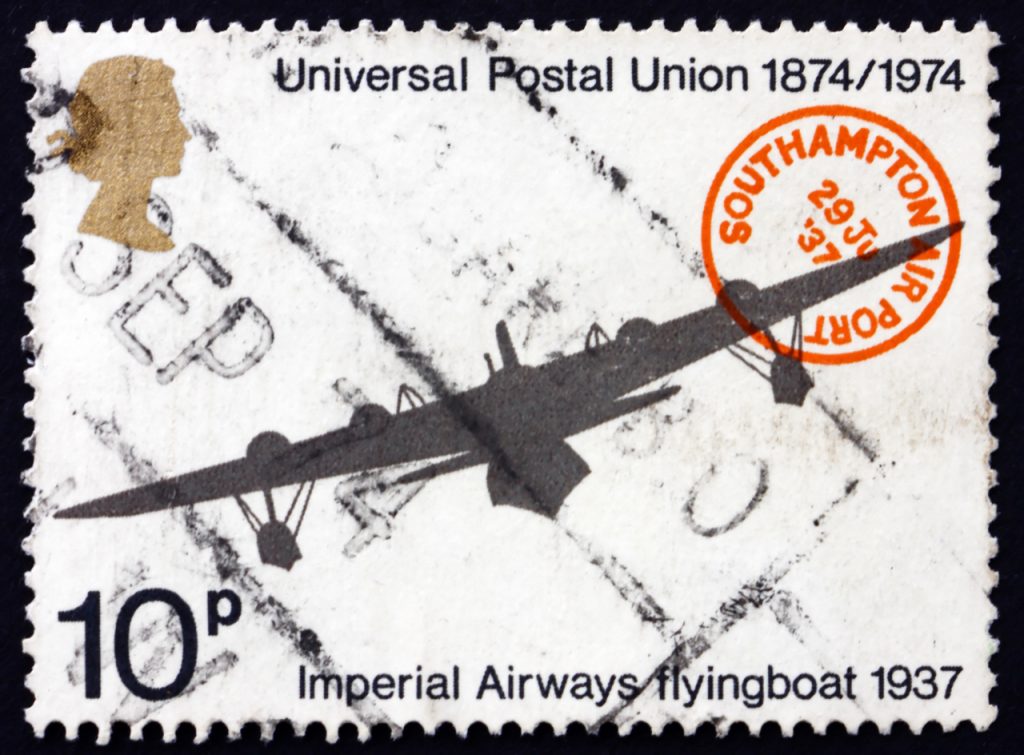
Bragging rights.
Whilst those early travellers must have revelled in the bragging rights of this wondrous experience, today’s travel trends point to both a nostalgia for this bygone age and the potential in bragging rights around unique experiences. 1930s cruise travel with its on-deck boxing, skittles and even clay pigeon shooting, denotes the truly experience-led holiday which went far beyond sitting around in your best pearls among the day’s society beauties and millionaires. Recorded on 16mm home movie cameras instead of Instagram, this was an experience to be shared and boasted about via the ephemera of the day, Snapchat’s equivalent in the postcard or early amateur photography. New experiences coalesced with new technologies with Kodak’s launch of a number of consumer-friendly Eastman stills and movie cameras boasting the tagline ‘You press the button, we do the rest’.
But how have experiences on holidays evolved for the modern age? The best of holidaying today both nods to the past and offers something new; with those previously looking for cookie cutter packages seeking more designed experiences. In today’s world, the modern holiday combines more experience with greater affordability than ever before with currently niche trends presenting potential to become commonplace. In the coming years, we can expect things like Space Tourism, Package holidays, cruises and Rail travel seeing an experience-led transformation, whilst those after experiences with an edge are provided with new opportunities to give their holidays a novel high.
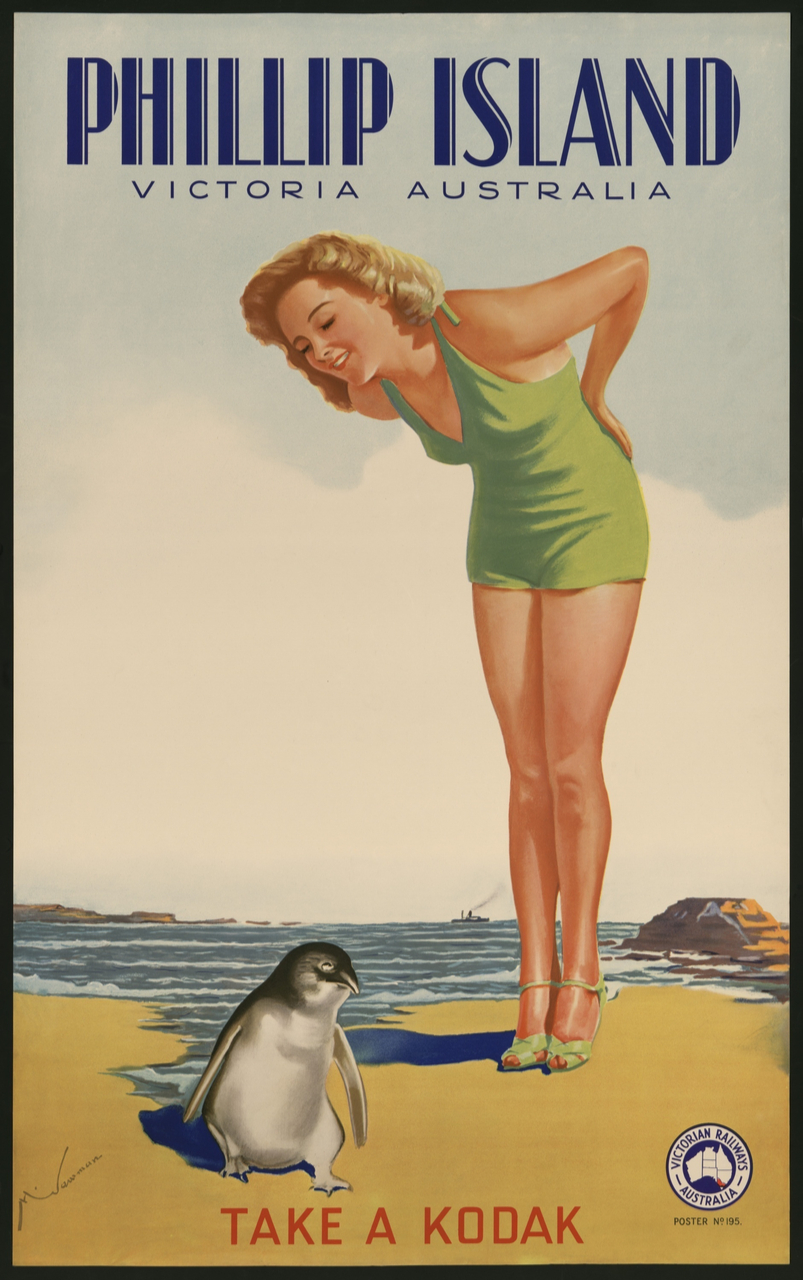
Space Tourism - the extreme to become mainstream.
With early flight carrying the same aura as space flight might do today, travel to space is likely to emerge as an affordable touristic experience within the next decade. With years of overpromises by Richard Branson about the future of his project Virgin Galactic, 300 people booked space flights at £145,000 ahead in 2011, whilst in 2014, the project received serious setback with their plane the VSS Enterprise breaking up and killing one of its two pilots. However with a successful test flight launched and safely landed in January 2018, the future of space tourism is looking increasingly certain. Though costs in the early days of Virgin Galactic flights are likely to be exclusive, Branson has suggested with confidence the likelihood of it becoming more affordable; enabling many more to experience weightlessness and a view of the earth from space.
In the meantime other operators are starting to play in the realms of space, with an SpaceTime Enterprises launching an immersive real time broadcast astrological experience with plans to launch multiple satellites. With 2.5m of funding in place, the first satellite is likely to launch in september 2019, with cameras to deliver live images/film of the Earth from space, a virtual reality experience comparable to looking out of the window of the International Space Station. Updating as it orbits around the planet, they promise an accessible galactic experience at a fraction of the cost.
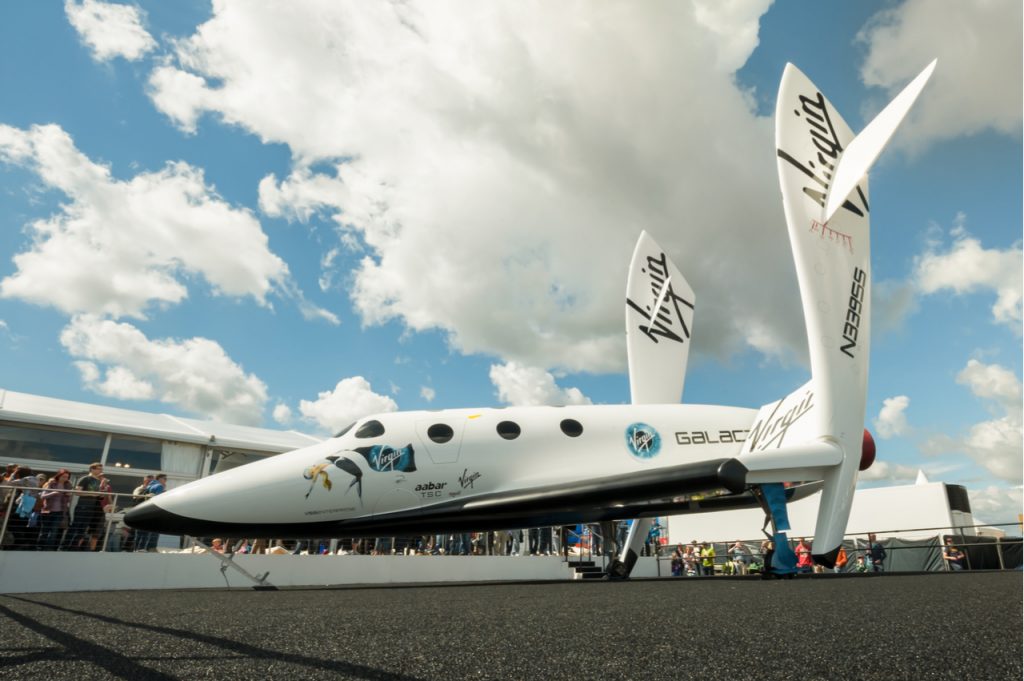
Package holidays and cruises broaden appeal with boutique experiences.
People’s increasing taste for experience has been a way both Virgin and Uniworld to tap into a broader market for package holidays and package cruises. Virgin’s forthcoming cruise line expecting to set sail for Miami in 2020 demonstrates draws its design inspiration from cutting edge boutique hotels rather than conventional cruise ships. Whilst mainstream cruise firms seek to broaden to appeal to families, Branson’s plan is to eliminate families from the offering to concentrate on the 25-40 demographic. More akin to a music festival-on-sea, ships will spend more time in popular port cities so guests can experience local cultures.
Uniworld’s similar launch, U, a new river cruise brand pitched at 21 to 45 year olds seeks to offer a boutique cruise experience with an independent small-scale feel. Two ships will sail the Rhine, Danube and Seine this year, offering activities from kayaking, wine tours, mixology classes and polaroid selfie stations below deck. With seating which wouldn’t look out of place on ITV’s Love Island, the brand could see success if it manages to tap into notions of sophisticated summer madness over screaming under 10s and sun-cream-slapped over 60s.
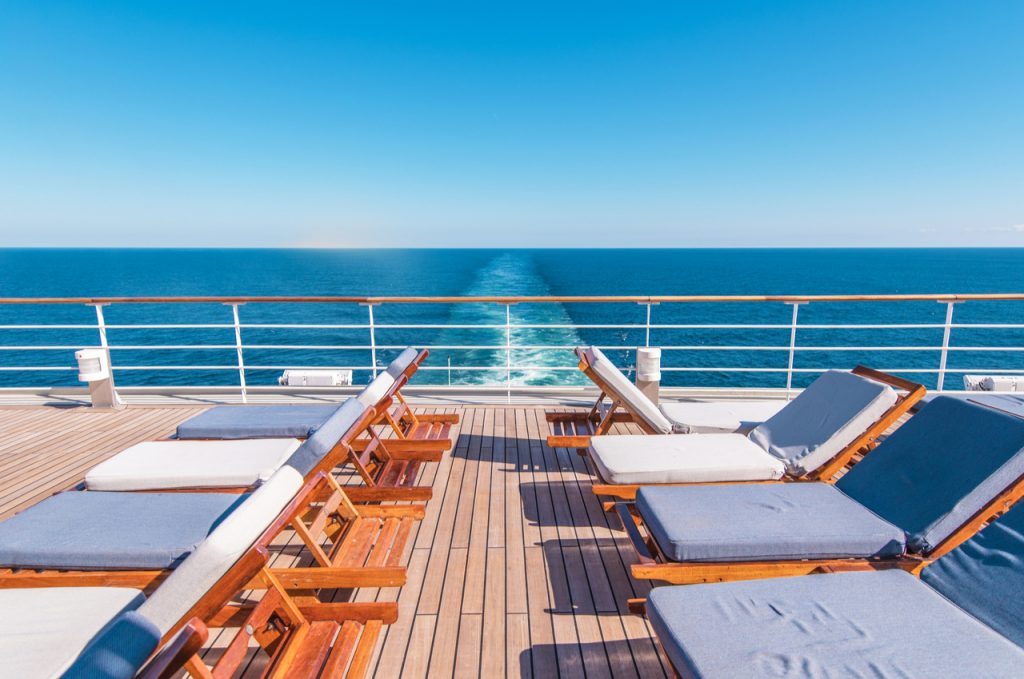
Luxury Railways see a sophisticated renewal.
Meanwhile, luxury rail travel is seeing its own restoration. In the context of 2017’s blockbuster ‘Murder on the Orient Express’, luxury rail operators have relaunched to combine touches of nostalgia with a taste of the future. The category is expected to grow in 2018, with several new luxury trains launched across the world, with routes such as the Twilight Express Mizukaze and Train Suite Shiki-Shima in Japan in 2017 fusing old style Japanese bathtubs with futuristic observation cars at the front and rear of the trains. Meanwhile South America’s first luxury sleeper train, the Belmond Andean Explorer launched in May 2017, offers spacious living quarters and stops along the way to see traditional dances and artisanal craft displays. Equally, the Venice Simplon-Orient Express and the Pride of Africa trains have demonstrated a reevaluation of train travel as an opportunity to satisfy a new generation of holidaymakers, featuring insta-perfect uniformed stewards and fine dining.
But whilst these may offer relatively exclusive opportunities for a currently select few, it’s important to think about the potential for trickle down for other railway providers who might need to cater to passengers with increasingly high expectations for a rail experience. Whilst we’ve seen the Caledonian sleeper shift from being ‘a train ride..[to] an escape’, Great Western Railway has similarly sought to play on the nostalgia of adventure – might we see a similar development for Virgin’s West Coast service who are currently stocking craft style ‘local’ ales on board? Like the disappointing ‘millennial’ that I am, I dream cups of coffee on trains in china cups, and the opportunity to buy a sandwich with a sell-by-date a little sooner than Christmas 2025 – I for one am hoping these lighthouse offerings amongst the travel services prompt mainstream changes across the category.
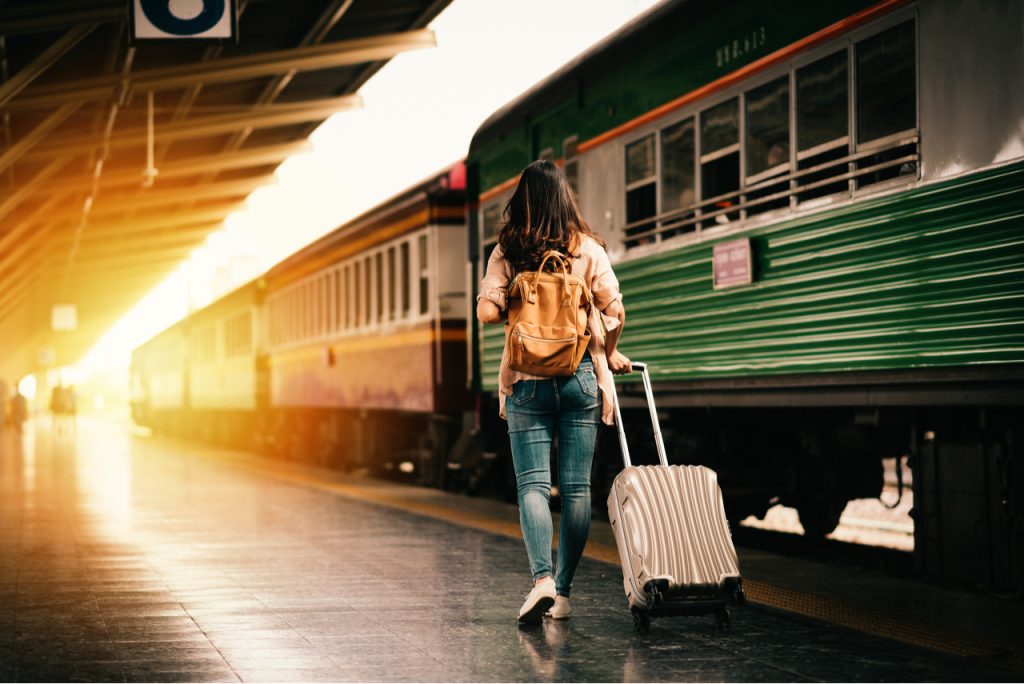
Experience junkies create demand for cannabis themed holidays.
With legalisation of cannabis sweeping across North America, the number of holidays and experiences themed around the substance have seen growth. From boutique accommodations featuring botanical gardens; to CBD infused skin care products and hemp treats for dogs, hotels are seeing opportunity in the talkability of creating marijuana related experiences as part of the travel offering. Whilst The Standard Hotels in California now stock CBD infused gumdrops in the minibar courtesy of Lord Jones; Portland’s Jupiter Hotel now offers an ‘Everything but the Weed’ kit, featuring coupons for local businesses selling the now legal product. Extreme behaviour perhaps, but one to watch as the global sentiment around marijuana develops.
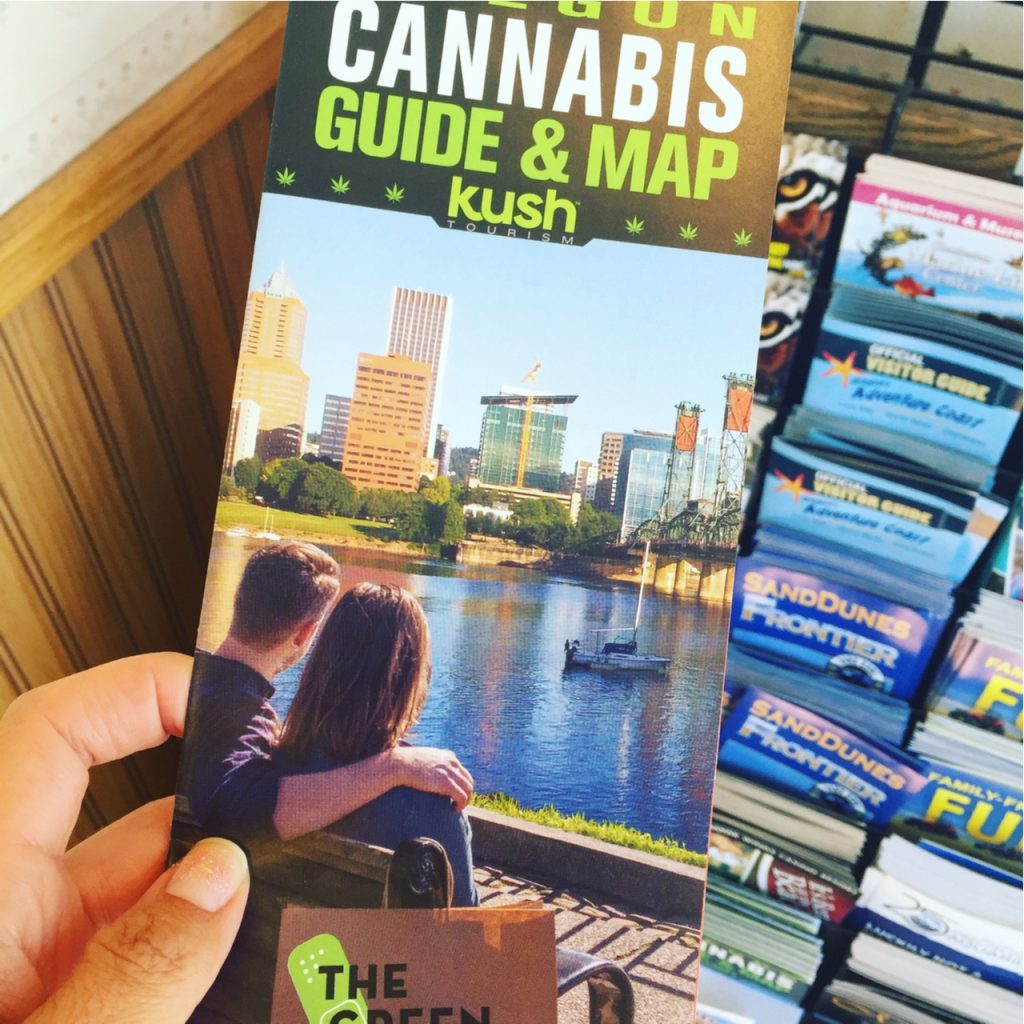
But what does this mean for launching a new product?
When thinking about launches in travel (and any category), the extreme consumers and early adopters provide us with useful signals. Though they might seem irrelevant to our brands in the present, they provide the clues for the future, and tracking these as they develop becomes even more important for launch as we seek to find places in the market for new products and ideas. 1920s/30s air travel has been described by those of the period as ‘harrowing adventure’, and yet thousands signed up for the experience – might we say the same about space tourism today?
We’ve seen other patterns in leisure shift from subculture to mainstream. From the resurgence of cheap as chips staycations for the middle classes in nostalgic seaside towns, (note Margate’s Dreamland seeing a 2015 £35m relaunch and the continued popularity of photographer Martin Parr); to eco-explorers opting for the remote precipices of the ‘civilised’ world of wifi on Stornoway or Skye, unique sleeps in hobbit houses or weekends breaks in Georgia (read our Adventure travel 2019 trends article to learn more about this area ) or remote parts of Turkey; responsible tourists avoiding over-congested hotspots and carbon-offsetting their trips – landing new concepts requires a consideration of the chronology of unusual behaviours and their maturity in the market.
Image Credits
- Shutterstock

By Constance Meath Baker
Strategy Planner, UK

